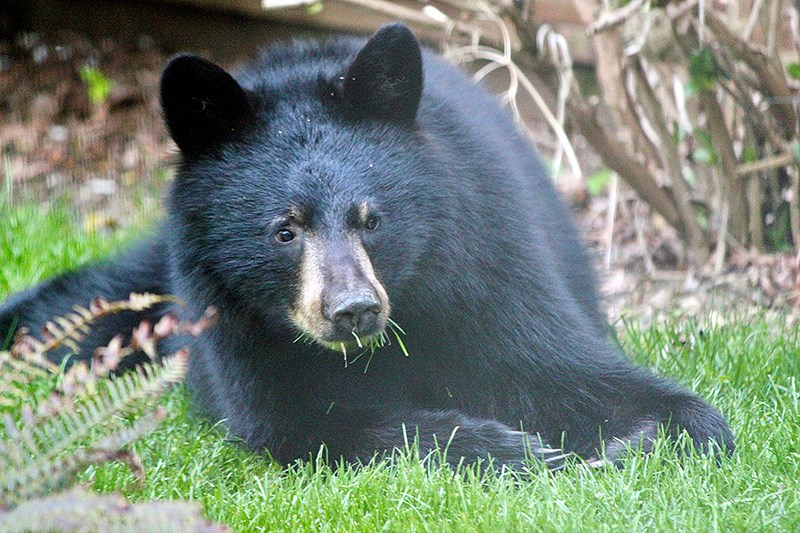The city of Port Moody will prepare a bear management strategy to help reduce the potential for conflicts between humans and the bruins as well as reduce the risks to safety and private property.
At a recent meeting, city council directed staff to explore a number of solutions such as social marketing and the placement of bear-proof communal waste collection bins in neighbourhoods bears are known to frequent, as well as report how much those solutions might cost.
Sgt. Todd Hunter of the BC Conservation Officer Service (BCCOS) said Port Moody’s position as an estuary at the head of a coastal inlet means the city is laced with travel corridors along rivers and streams for wildlife such as bears and cougars that can bring them into conflict with people.
“It’s always an area where you’re going to find wildlife,” he said. “It’s encroachment into their habitat.”
Hunter said there have already been two reports of black bears in the city since April 1 as well as two sightings of cougars. The latter were walking along railway tracks used by the West Coast Express commuter train that is a known travel corridor for deer. He said the cougars were probably looking for food rather than trouble.
Hunter said last year, BCCOS received 536 bear calls in Port Moody, another 41 in Anmore and 34 in Belcarra. That compares to 1,697 in Coquitlam and 1,032 in Port Coquitlam. He said there was about 40 calls about cougars.
In either case, Hunter said people need to act rationally.
“Follow the basic wildlife rules to leave them alone and keep your distance,” he said, adding every encounter should be reported so the BCCOS can determine hotspots or patterns of potentially troublesome behaviours.
Hunter said the best way to avoid conflict with wildlife is to not create an opportunity for it to happen in the first place. That includes responsibly managing garbage and storing foodstuffs such as grains so that even smaller creatures like rats aren't tempted.
“If you attract any sort of wildlife around your home, you’re going to attract a circle of wildlife,” Hunter said.



